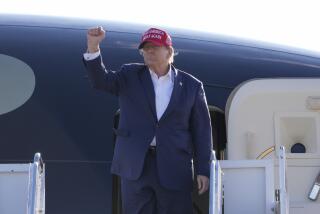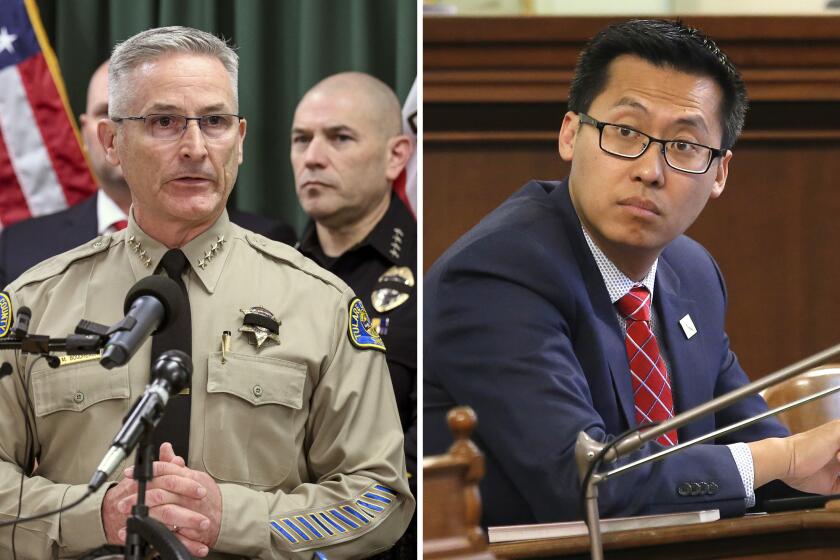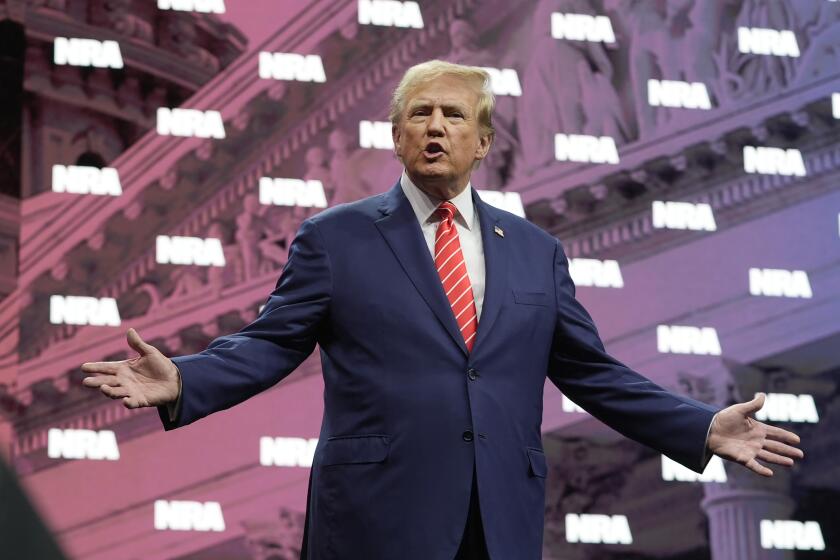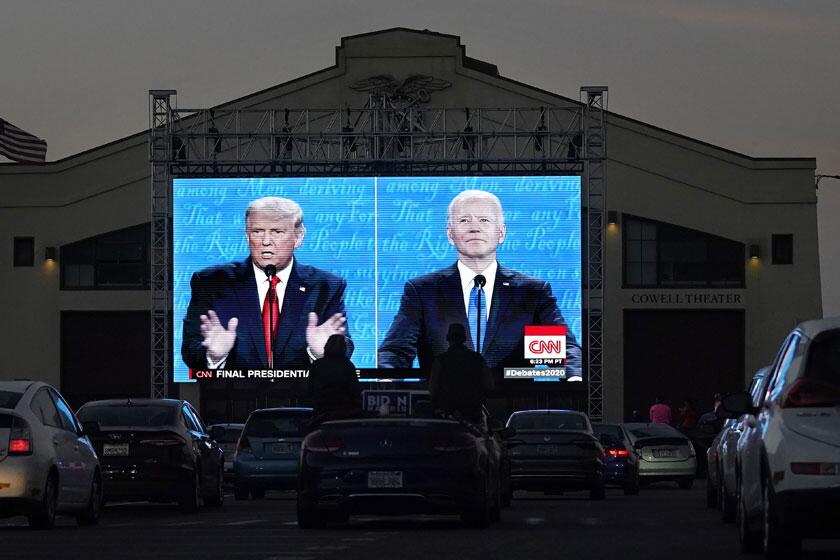Rostenkowski Denies Role in House Scandal
Responding to a week of escalating allegations, a defiant Rep. Dan Rostenkowski (D-Ill.) denied Saturday that he obtained thousands of dollars in cash in an embezzlement scheme involving office expense funds.
“I want to make it absolutely clear that I have committed no crime and have engaged in no illegal or unethical conduct,” said the Chicago Democrat, standing in the vast, ornate hearing room of the House Ways and Means Committee, which he heads.
Rostenkowski was stern-faced and controlled as he responded for the first time to the new round of allegations. He vowed not to let a federal investigation of his finances interfere with his central role as one of the Administration’s strongest allies on such vital issues as the federal budget, health care reform and trade legislation.
At his side were two new defense lawyers--tough courtroom fighters whose hiring signals a shift in strategy as Rostenkowski battles to stop a criminal investigation that appears to be gaining momentum.
The investigation of Rostenkowski took a sharp turn on Monday when Robert V. Rota, the former head of the House post office, implicated the lawmaker in a scheme to receive cash in exchange for stamps bought with vouchers drawn on Rostenkowski’s congressional office account.
In a plea bargain with prosecutors, Rota admitted providing thousands of dollars in illegal cash directly to members of Congress for nearly 20 years. He claimed that a lawmaker, identified in other documents as Rostenkowski, received $21,300 in cash through the scheme between 1985 and 1991.
Since then, new allegations have surfaced in the press that Rostenkowski may have misused $100,000 in campaign funds and that two of his daughters received $200,000 over several years for no-show jobs at the Chicago Board of Trade, a commodities exchange that Rostenkowski champions in Congress.
As the charges flew and Republicans questioned Rostenkowski’s effectiveness on the Ways and Means Committee, the Chicago native maintained what aides said was a painful silence.
But Friday night, he hired two new lawyers and apparently changed his strategy.
Rostenkowski’s previous lawyer, Stanley Brand, has a reputation as a negotiator, someone skilled in avoiding a direct confrontation with law enforcement. The new lawyers, Robert S. Bennett and his partner, Carl S. Rauh, are known as tenacious fighters.
Bennett represented former Defense Secretary Caspar W. Weinberger during the Iran-Contra investigation and Clark M. Clifford, a leading Washington attorney and former adviser to Democratic presidents, against allegations that he deceived bank regulators about Arab ownership of a Washington bank.
He has also represented major defense contractors and served as special counsel to the Senate Ethics Committee during inquiries into the “Keating Five” scandal and Sen. Dave Durenberger (R-Minn.).
The switch in attorneys became public Saturday when Rostenkowski held his hastily called press conference on Capitol Hill with Bennett and Rauh at his side.
Stalking to the podium at the front of large room where his portrait hangs on the wall, Rostenkowski read a prepared statement and refused to answer questions.
“For 41 years, I have honestly and proudly served my country, my state and the city of Chicago,” he said. “Those who know me best would agree.”
Rostenkowski said he was the victim of people who were trying to get a political advantage out of the investigation and others trying to “settle old scores.”
Saying he was frustrated and angry over the allegations, Rostenkowski concluded his brief statement by saying: “I am presumed to be innocent. I have been charged with nothing, but most importantly I am, in fact, innocent of any wrongdoing.”
The first task confronting Rostenkowski’s new lawyers will be trying to avoid a federal indictment, which some sources close to the investigation speculate could come in a matter of weeks.
Under House rules, an indictment would force Rostenkowski to relinquish his chairmanship of the Ways and Means Committee.
“He cannot afford an indictment, even if he is ultimately found innocent,” said one of Rostenkowski’s allies. “It would strip him of his most important asset, the chairmanship.”
The investigation into allegations of embezzlement at the House post office began two years ago. Last summer, Rostenkowski refused to testify before the federal grand jury conducting the inquiry, citing his Fifth Amendment right against self-incrimination.
Prosecutors got a big break last week when Rota agreed to plead guilty and testify in court. The information he provided to prosecutors concerning Rostenkowski and at least one former lawmaker corroborated testimony from a post office supervisor and was backed up by the actual office vouchers, according to sources involved in the inquiry.
The vouchers form a critical paper trail, and prosecutors have raised questions about files that are missing from the House post office records.
In a letter first reported by the Washington Post, J. Ramsey Johnson, the interim U.S. attorney here, told a congressional committee chairman that “broad categories” of files were missing from records subpoenaed by the grand jury.
Among the missing materials were Rota’s correspondence, according to the letter.
More to Read
Get the L.A. Times Politics newsletter
Deeply reported insights into legislation, politics and policy from Sacramento, Washington and beyond. In your inbox three times per week.
You may occasionally receive promotional content from the Los Angeles Times.






